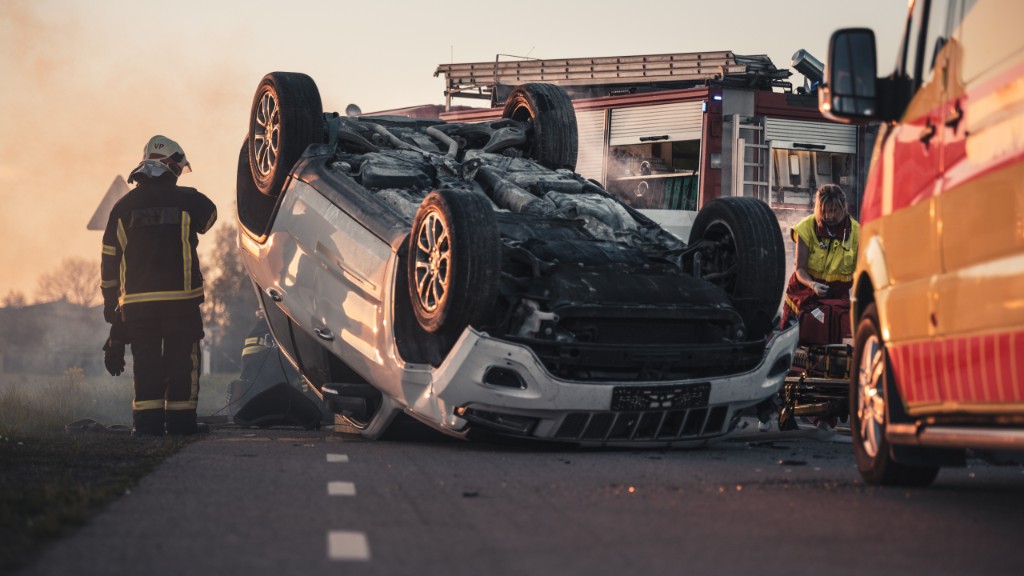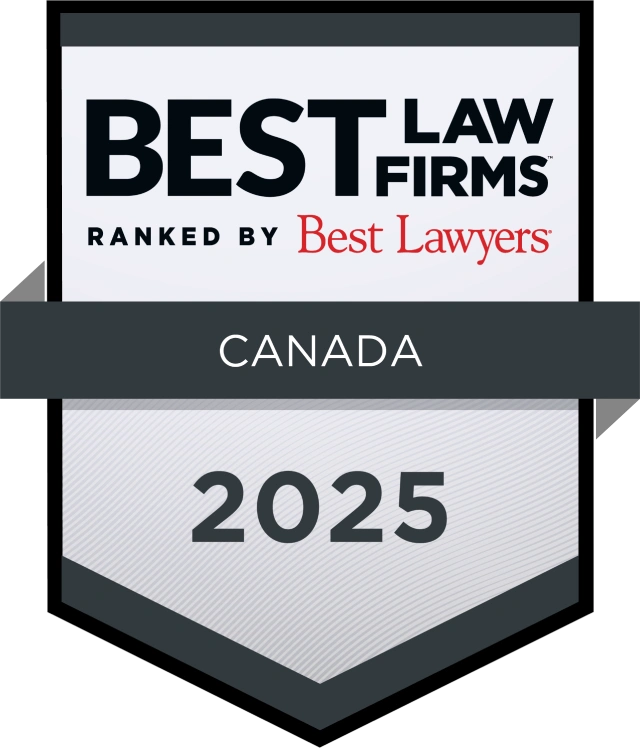Chestermere Personal Injury Lawyers
Get legal answers now. Speak to our lawyers.
Speak with our Chestermere personal injury lawyers and get legal answers to your personal injury questions.
Table of Contents
In Canada, unintentional injuries are the leading cause of death for those under 30 and one of the leading reasons for emergency department visits. Every year, on average, over 30,000 Albertans are admitted to the hospital due to injuries that they sustain. These injuries are often caused by motor vehicle collisions and falls (such as slip-and-falls and trip-and-falls).
Even the most careful person can be injured by the careless actions of others. You could easily slip and fall on an icy walkway someone failed to clean up or become concussed after getting t-boned at an intersection because a driver decided to run a red light.
These accidents can cause serious, life-altering injuries that could require years of medical and rehabilitative treatment to recover.
When faced with the aftermath of an injury, you shouldn’t have to bear the burden alone. It’s unfair that you should pay the price for someone else’s negligence. This is where our Chestermere personal injury lawyers, with their extensive experience and successful track record, step in. They have guided numerous clients through the process of receiving compensation for their injuries, providing them with the support and legal expertise they need.
There are legal options available to correct someone else’s wrongdoing. Take advantage of our Chestermere lawyers’ offer of a free initial consultation today if you or a loved one was injured because of the negligence of others.
Steps to Take After Being Injured in an Accident
Being injured in an accident is never fun; suddenly, your world shifts, and added responsibility is thrown onto your plate. If you are in an accident, whether it is a slip and fall, motor vehicle accident, or a dog bite, you should take the following steps:
- Get Medical Assistance ASAP: Your health and safety are the top priorities. As soon as you are injured in an accident, you should see a doctor, as they can fully assess the degree of your injuries and provide proper treatment. Waiting to get care can worsen your injuries and weaken your claim.
- Report the Accident to the Appropriate Authorities: For instance, if you are in a motor vehicle accident, you should report the accident to the police or collision reporting centre. You may also want to contact your insurance provider. You should also inform a property owner if an accident occurs on their premises.
- Gather Evidence if possible: Trying to document the accident can be helpful. Taking photos, videos, and witness statements can help you when making a claim in the future. If you cannot collect evidence, our firm has private investigators who will work with you to get evidence after the fact. Also, remember to keep medical records to support that the accident caused your injuries.
- Contact Our Chestermere Personal Injury Lawyers: One of the main ways to recover compensation for an injury is through litigation. Our team has worked on many personal injury cases and helped secure compensation for several clients. Contact us for a free case evaluation to understand any potential claims you may have. We will help you through the lawsuit process.
Generally, you have two years after an accident to make a personal injury claim. Waiting any longer can risk you forfeiting your legal rights. There are quicker deadlines usually if you are suing a municipality. Don’t wait until it’s too late.
You don’t have to bear the cost of an accident alone; there are options available to be compensated. Let us leverage our skills and experience to assist you with your claim. We can take on the brunt of claiming so you can focus on healing from your injuries. Schedule a consultation with our firm today if you or someone close was seriously hurt in an accident.
Let us put our experience to work for you
Tell Us What Happened
We are here to help Albertans get the compensation and benefits they deserve after being injured in an accident. We take this responsibility very seriously. Book your free call with our personal injury lawyers today and let us help you.
Our phone lines are open 24/7.

Commonly Used Legal Jargon in Personal Injury Claims
The legal world can already be complicated with all the different parties involved, and the complicated terms used in lawsuits certainly don’t help. The following is a list of commonly used legal terms in personal injury cases:
- Negligence: This is an umbrella term used when someone fails to take the level of care that someone reasonable in a similar situation would take. It is often used to bring forward a legal case. Negligence requires proving there was a duty of care, there was a breach of that duty by failing to meet the standard of care, and that breach caused an injury.
- Duty of Care: Certain situations will lead to people having an unwritten contract with each other not to cause harm and prevent harm. For instance, a store owner has an unwritten contract with their customers to protect their safety by ensuring the store is safe.
- Standard of Care: How much care is needed to prevent harm in a particular situation. For instance, a store owner should immediately clean up spills to avoid a fall.
- Reasonable person: This would mean how someone in a similar situation would act. For instance, the average store owner would clean up a spill as soon as they become aware of it.
- Breach of Duty: When the unwritten contract of not causing or preventing harm is broken because the standard of care was not met. For instance, failing to clean up a spill in a store that could cause a fall.
- Causation: The failure to prevent harm caused an injury to occur. For instance, the store owner’s failure to clean up a spill led to someone slipping and falling.
- Plaintiff: The person injured in an accident and is suing. For instance, a customer who slips and falls and sues is the plaintiff.
- Defendant: The person accused of causing your injury and sued. For example, an owner of a store where a customer slips and falls.
- Burden of Proof: The obligation to provide evidence in a case to support the claims made. In most personal injury cases, the plaintiff must prove that the defendant was responsible for the injuries because of their actions. For instance, the plaintiff could provide eye-witness reports, use video cameras, and use medical evidence to show that a store owner was aware of a spill and failed to clean it up and that spill led to a fall that caused an injury.
- Pecuniary Damages: Payment to compensate for financial losses caused by an accident. These can be easily calculated, including lost wages, loss of earning potential, future care, medical expenses, etc.
- Non-Pecuniary Damages: Payment to compensate for non-financial losses caused by an accident. Losses such as emotional distress, pain & suffering, loss of enjoyment of life, and inconvenience can be claimed under this category. It is harder to calculate the value of these kinds of damages; however, in 1978, the Supreme Court stated there was a cap of $100,000 adjusted for inflation. Today, that value is over $400,000.
Our team understands that you may not be familiar with certain legal terms and will work hard to make sure that you know what’s going on in your case and will break everything down so they are easily digestible. Contact us today to schedule a free consultation to learn more about how our team can help you understand the complex world of litigation.
Types of Personal Injury Cases Our Chestermere Lawyers Can Help You With
Personal Injury is a widely inclusive term under the law that refers to physical, psychological, or emotional injuries that are caused by the negligence of another. Many kinds of personal injury claims can be made, each requiring unique approaches and vast knowledge to advance. For over 60 years, Preszler Injury Lawyers have helped clients with many types of personal injury cases, including but not limited to the following:
- Motor vehicle accidents
- Slip-and-fall accidents
- Trip-and-fall accidents
- Dog attacks
- Off-road vehicle accidents (ATVs, UTVs, dirt bikes)
- Motorcycle accidents
- Bicycle accidents
- Pedestrian accidents
- Watercraft (boat) accidents
- Defective product accidents
- Medical malpractice
- Snowmobile accidents
- Assault and battery
- Institutional abuse
- Plane accidents
- And More
If you have experienced a personal injury, our firm may be able to help you. Reach out to schedule a no-obligation case evaluation to learn more about your rights.
How Our Chestermere Preszler Personal Injury Lawyers Can Be of Assistance
Contact us if someone else’s actions have injured you or a loved one. Since 1959, our firm has dedicated itself to helping clients recover their losses and return to the lives they had before their injuries.
Even seemingly, injuries can have significant impacts, making it difficult to enjoy life. Our team wholeheartedly believes negligent parties should be held accountable for their actions.
We have years of experience and can help you navigate the challenging and complex world of litigation. Rather than trying to learn how litigation works, focus on your recovery and allow us to focus on the legal stuff. We have advanced many cases over the years and may be able to help you get compensation. We will work with you to evaluate the value of your case and will assess your eligibility to bring forward a case. Because we believe in the cases we take on, we operate on a fully contingency fee basis. This means that you don’t pay any legal fees unless you win.
Book your free initial consultation today to learn how our team can support you in your time of need.
Notable Achievements
Awards and Recognitions
Proud to be one of Canada’s oldest personal injury law firms. The firm was founded in 1959 and has now grown to numerous offices across Canada. We have cumulatively secured over $1 billion for thousands of Canadians and are proud to maintain a high standard for our professional services without compromising on care or compassion.
Read More On personal injury Claims
Here are some blogs on personal injury claims.

personal injury
|
September 3, 2025
Understanding Spinal Cord Injuries
Spinal cord injuries can be life-altering. Because the spinal cord carries signals between the brain and the rest of the body, damage to it often…

personal injury
|
September 3, 2025
What Is Post-Concussion Syndrome?
Most people think of a concussion as a temporary injury. With rest and proper care, symptoms often improve within a few weeks. But for some,…

personal injury
|
June 5, 2025
Catastrophic Injuries in Alberta
Catastrophic injuries are very serious injuries that impose lasting consequences. For legal purposes, catastrophic injuries are defined in Alberta as permanently damaging to the victim’s…
Watch Our personal injury Videos
Check out our video series where we break down many interesting topics about personal injury claims in Alberta.
Commonly Asked personal injury Questions
Here are our most asked questions on personal injury claims.
What if I do not win the case? Do I owe any money?
We only charge fees if we are successful in your case, and we will never charge you back for expenses incurred in an unsuccessful case.
When should I contact a lawyer?
If you are asking this question, you should contact a personal injury lawyer. We provide free consultations with no obligation. If you think you have a situation where a personal injury lawyer might help, call us and ask!
Does your firm also represent insurance companies?
No. Our lawyers only represent accident victims and never insurance companies.
How do I pay for a personal injury lawyer?
Our personal injury lawyers do not require payment until after settlement. Then, the fees are payable out of the proceeds of the settlement. If there is no settlement, we do not charge a fee.
How can I help my lawyer with my case?
Our personal injury lawyers know the law and what evidence is important in your case and will fight for you. Insurance companies also know the law and what evidence is important, but they are fighting against you. Our personal injury lawyers will deal with the law and the insurance companies and let you focus on your health and treatment.
How long does it take to settle a case?
A case can take months to years to settle, depending on the severity of your injuries and the complexity of the case.
What are the different types of compensation I can get in a claim?
In personal injury claims, you can claim damages for the following:
- Pain and suffering;
- Loss of earning capacity, both past and future;
- Out-of-pocket expenses;
- Future cost-of-care; and
- Loss of housekeeping capacity.
What is a statute of limitations?
If you want to sue somebody, in most cases, you have a time limit. If you do not file your lawsuit in time, your legal claim is extinguished. These time limits are set out in various statutes (laws). A law that sets down a time limit to start a claim is known as a statute of limitations. It is very important to know the time limit to start your claim. If you miss that deadline, your claim can no longer be pursued.
When will I be compensated after I settle a claim?
After a settlement, it typically takes between 4 – 6 weeks before you receive your funds.
How will the strength of my case be determined?
Each lawsuit has a number of legal elements that must be assessed to determine the strength of the whole lawsuit. Our lawyers assess these elements and use the proper evidence to prove them. We will be honest and upfront with you about the strengths and weaknesses in your case.
Do I need to go to trial?
The vast majority of cases are settled before trial. In the cases that go to trial, the plaintiff usually makes a decision to go to trial after turning down an offer to settle from the defendant. However, there are cases where the defendant does not offer sufficient money to settle the case, and the only fair way to get the compensation you deserve is to go to trial.
Does it cost me money when we talk on the phone or meet?
No! Since we work on a contingency fee that is a fixed percentage of the settlement, we do not charge you for phone calls or meetings. This means you can feel confident in picking up the phone or meeting with your lawyer without worrying about how much you are being charged.
Do I have to pay anything upfront?
No. We only charge a fee after we have successfully won your case. In addition, we will cover the expenses of the lawsuit along the way and claim those back as part of the settlement. You do not have to pay anything upfront.
What is a contingency fee?
A contingency fee refers to a fee that is payable after settlement and is calculated as a percentage of that settlement.
Is there a time limit for making a personal injury claim?
Yes. There can be various time limits associated with making a personal injury claim. The most common time limit is the two-year limitation period set out under the Limitations Act, RSA 2000, c L-12. This limitation period can be suspended in some cases, particularly when minors or people with a legal disability are involved. In addition, there are sometimes important notice periods where you must notify a defendant, such as a municipality, with a much shorter period.
Do I need to pay taxes on my personal injury settlement?
No. Personal injury settlements are not “taxable income” for the purposes of your tax obligations. This is true even if the personal injury claim has wage loss components, and those wages would have been taxable income.
I am partially at fault for my injury, can I still make a claim?
Yes. It is called contributory negligence if you are partially at fault for your injury. Your claim is reduced by the percentage of fault attributable to your fault. However, you can still make a claim against other at-fault parties.
How is a personal injury claim valued?
A personal injury claim is valued by assessing the quantum of the case against the risk of no or partial liability.
The quantum of a case is based on how much pain and suffering, wage loss, out-of-pocket expenses, care costs, and housekeeping capacity have been incurred. Liability is based on the chances of success against the defendant and the chances of some liability being put back on you.
Do all personal injury claims go to trial?
No. In fact, a very small percentage of personal injury claims go to trial. The vast majority settle somewhere along the path from commencement to trial.
Can I change lawyers before my case settles?
Yes. Choice of counsel is a legal right. In contingency cases, when deciding you want to change lawyers, the new lawyer will obtain the legal file from the old lawyer and pay out any disbursements incurred to date. Then, upon settlement, the legal fee (usually a percentage of the settlement) will be the same whether you switched lawyers or not, and the two lawyers will work out among themselves what a fair split of that fee is based on who did what.
Can a settled personal injury claim be reopened?
Settlements are binding and final, with very few exceptions. The law has developed to provide as much certainty as possible when cases are resolved. This means that a settlement is almost always final. The situations where a settlement may not be binding are those that involve fraud, duress, undue influence, or an unconscionable settlement. These situations are rare, but if you believe one of those applies to your settlement, you should contact a lawyer.
Does going back to work hurt my case?
Going back to work affects your case. As wage loss is a part of your case, there is a link between how long you are off work and how much your claim is worth. However, this does not mean it hurts your case to return to work. It helps illustrate what your case is for everybody. Even if you ultimately cannot return to work, it is valuable to try to go back. If you cannot return to work, your case will be stronger if you try.
Can I go back to work if I file a personal injury claim in Calgary?
Yes. A personal injury claim does not dictate how you live your life. Our personal injury lawyers will look at how the injury affected your life when making your claim. How long you are off work will affect your claim, but the fact that you have a claim is not a deciding factor in your return-to-work journey. Your job is to go to treatment, get better, and get back to work and your regular life as soon as possible.
Why hire a personal injury lawyer for a personal injury claim in Calgary?
Personal injury claims can be complicated. We have an adversarial system in Calgary, which means the insurance company against whom you are making a claim has interests that are opposed to yours. The insurance company can use the law to its advantage to oppose your claim. Insurance companies are sophisticated litigants. A personal injury lawyer can level the playing field between you and an insurance company.
What if I have a pre-existing injury?
Pre-existing injuries make lawsuits more complicated and increase the need for legal help. Insurance companies will use a pre-existing injury as a defence against your claim to the full extent of the law. A personal injury lawyer can help frame the realities of a pre-existing injury to benefit your case. For example, if you have a pre-existing injury, then you are more likely to be injured in an accident than a healthy person.
What if I need treatment? How can I obtain it if I don’t have insurance or money to pay?
If you are injured in an accident, attending to treatment is important for your health and the legal claim. Unfortunately, in situations where there are no benefits covering treatment, you might be in a position where you cannot afford it. The insurance company against whom you are making a claim can voluntarily assist with treatment, though they have no legal obligations to do so. In some circumstances, treatment can be obtained on credit, with a promise to pay the provider at the time of settlement.
What is involved in a personal injury claim?
A personal injury claim involves numerous steps. Along the way, the parties can settle. The first steps involve giving the defendant notice of the claim and collecting documents and witness information. If the parties cannot settle, you must file a lawsuit in court to go further. That triggers a lot of rules and obligations under the court’s rules. A case will go to trial if it is never settled.
What is negligence, and why is it important in a personal injury case?
Negligence is a cause of action that arose in common law over the years. The law of negligence requires everyone within the jurisdiction to take reasonable care and not injure their neighbours. In this context, “neighbour” means anyone who might reasonably and foreseeably be harmed by your activities. If you are driving, that includes other users of the road. If you run a business, it means people who might come onto your premises.
HURT DUE TO SOMEONE ELSE’S ACTIONS IN CHESTERMERE?
Contact Our Lawyers Now
Serving clients across Chestermere
We handle all types of personal injury claims. Book your free case review today.



